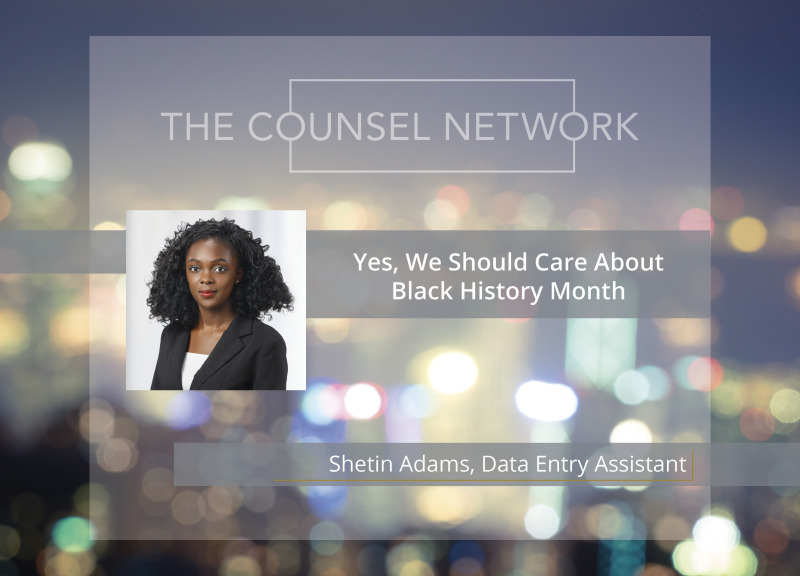Yes, We Should Care About Black History Month
In his 1994 interview with the Paris Review1, prolific Nigerian author Chinua Achebe introduced the following proverb to audiences around the world: “[…]until the lions have their own historians, the history of the hunt will always glorify the hunter”.
I’m sure you’ve seen iterations of this quote on Twitter, Facebook, or even a viral post on LinkedIn. When I was first introduced to this proverb, it was about eight years ago, online. Since then, I’ve seen it online dozens of times, and not once have I seen those words attributed to any particular person. On the internet, Achebe’s proverb is simply listed as “-African proverb”.
Chinua Achebe’s name being lost in the Western lexicon is not an isolated incident. It is part of the larger trend of Black writers, activists, academics, scientists, businesspeople, and so forth being erased from our fields of view; lost in history only to be found by those dedicated few who make an active effort to learn more about Black history. Chinua Achebe is the mastermind behind what has been described as the most famous, most widely read book in modern African literature, Things Fall Apart, published in 1958. He went on to have a successful career as a writer, academic, politician, and publisher across Nigeria, England, and the United States (where he would eventually pass away in 2013). In spite of all this, one of his most famous quotes is continuously relegated to simply: “-African proverb”.
Maybe you’ve heard of Chinua Achebe. Chances are, you haven’t. While the names of white icons like George Orwell, Einstein, Jane Austen, and Socrates are considered necessary to know for a functional understanding of culture and arts, the names of Black icons like Chinua Achebe, Ama Ata Aidoo2, Haile Selassi3, and Onesimus4 often remain unknown outside the syllabi of underfunded African/Ethnic Studies courses at major universities. This matters because the exclusion of Black excellence in history books, media, and discussions of iconic figures in history contributes to the continued marginalization of Black people in virtually every area of life. Whiteness becomes synonymous with excellence, innovation, culture, and talent. Blackness is essentially ignored. This effect has dire consequences for everyone, including the legal profession.
In May 2020, The Counsel Network, jointly with the Canadian Corporate Counsel Association, published the sixth edition of In-House Counsel Compensation & Career Report, which found that ethnic diversity remains a challenge in legal departments. Of the 1,141 in-house counsel who took part in our research survey (conducted prior to the pandemic), 23% identified as a Racialized minority and 4% idenitified as Black. Furthermore, Racialized participants reported a mean salary $12,000 below that of their non-Racialized counterparts. The correlation between the results of our survey and the lack of mainstream awareness and recognition of Black achievement may be somewhat inconspicuous at first, however, upon further consideration the connection becomes clearer.
In 2020, Ryan Watkins (Partner at Toronto-based employment law firm Whitten & Lubin) manually looked at the websites of 12 of Toronto’s largest law firms and found that of 1,514 partners in Ontario, only 1% were Black5. For reference, Black people make up nearly 10% of Toronto’s population6. When asked about this discrepancy, Watkins proposed that the implicitly biased recruiting practices were partially to blame and ”with the status quo, young Black students do not see themselves reflected in the profession, which can dissuade them from pursing it in the first place.“
The lack of mainstream recognition and respect for the contributions that Black people and cultures have made throughout history (and continue to make today) simply emboldens the implicit biases that identify that which is associated to Black people as alternative, strange, less refined, and less respectable, while identifying that which is associated with White people as cultured, developed, relatable, and trustworthy. In other words, perhaps a white hiring lawyer would be enthralled by a candidate who is well-versed in the works of George Orwell…but would this enthrallment be the same if the candidate instead grew up reading Chinua Achebe?
“[…]Until the lions have their own historians, the history of the hunt will always glorify the hunter”. These wise words from a man who dedicated his entire career to bringing the stories of African people (beyond just slavery) to the global stage tell us all we need to know about Black History Month. This is a time to learn about Black heroes who have been forgotten, Black trailblazers whose contributions to humanity have made our world a better place, and Black innovators whose names our history books and school curriculums have deprived us of. But don’t let it stop in February! Celebrate Black accomplishments, Black excellence, Black history, and Black futures year-round! Learn about the hunt from the lion’s perspective — not only the hunter’s — so that Black history can be honoured and esteemed in a way that it has failed to be for a long, long time.
Shetin Adams, Data Entry Assistant
403.444.1768
[1] https://www.theparisreview.org/interviews/1720/the-art-of-fiction-no-139-chinua-achebe
[2] https://www.theparisreview.org/interviews/1720/the-art-of-fiction-no-139-chinua-achebe
[3] https://www.blackhistorymonth.org.uk/article/section/bhm-heroes/haile-selassie-king-god-or-redeemer/
[4] https://www.the-scientist.com/foundations/introducing-inoculation-1721-68275
[6] https://www.toronto.ca/wp-content/uploads/2019/11/99b4-TOHealthCheck_2019Chapter1.pdf


